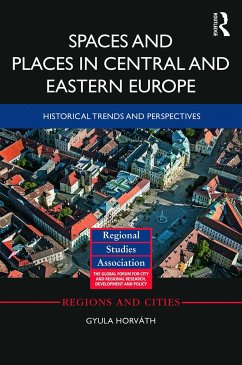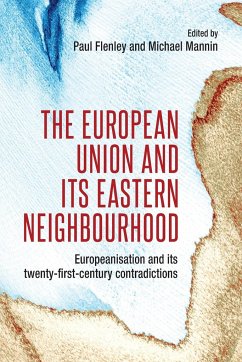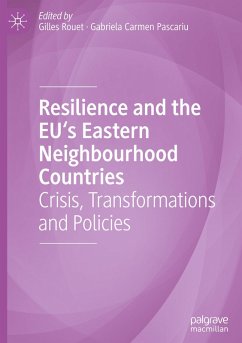
Theorizing the European Neighbourhood Policy
Versandkostenfrei!
Versandfertig in über 4 Wochen
196,99 €
inkl. MwSt.
Weitere Ausgaben:

PAYBACK Punkte
98 °P sammeln!
This book aims at theorizing the ENP as such, explaining the origins, development and effectiveness of this policy. Building on this effort, it also pursues the broader objective of addressing certain shortcomings in EU external relations theory, and even beyond, in International Relations theory. Finally, it aspires to provide new insights for European policy-makers. It is one of the first volumes to provide different theoretical perspectives on the ENP by revisiting and building bridges between mainstream and critical theories, stimulating academic and policy debates and thus setting a novel...
This book aims at theorizing the ENP as such, explaining the origins, development and effectiveness of this policy. Building on this effort, it also pursues the broader objective of addressing certain shortcomings in EU external relations theory, and even beyond, in International Relations theory. Finally, it aspires to provide new insights for European policy-makers. It is one of the first volumes to provide different theoretical perspectives on the ENP by revisiting and building bridges between mainstream and critical theories, stimulating academic and policy debates and thus setting a novel, less EU-centric research agenda.













